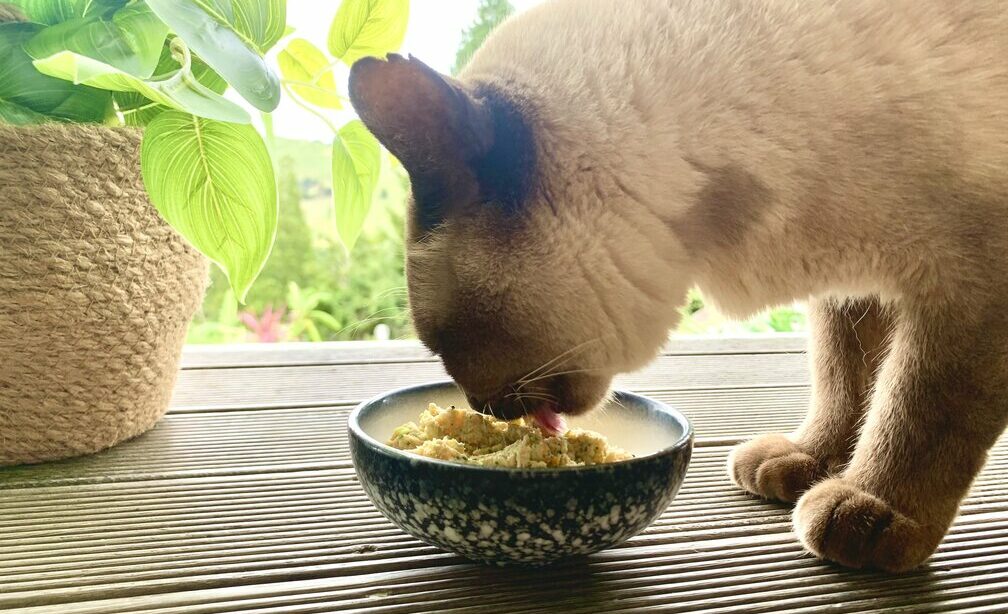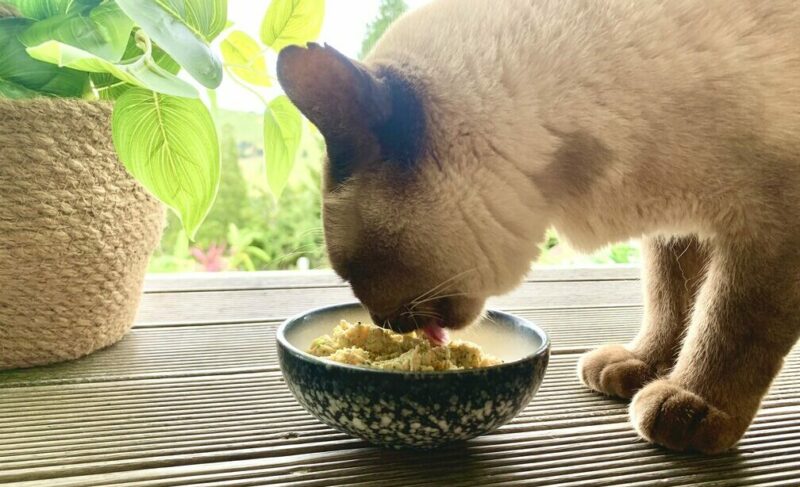Homemade cat food is a practical way to ensure your beloved cat eats good-quality food. Although most of the nutrients come from meat, calcium can be obtained from a bone meal supplement. It can be a nutritional-grade bone meal, finely crushed eggshells, or a calcium lactate supplement. If you are feeding growing kittens, bone meal is recommended—and remember, their calcium requirements are higher than in adult cats.
Cats need to consume 250 to 500 mg of taurine per day. Recipes containing hearts and livers are rich in taurine, which is why we love them. Cooked meats lose taurine content, so make sure to include the hearts. Additionally, supplemented taurine is recommended to ensure that daily needs are covered. We recommend moderation in the case of the liver because too much liver over time can cause excess accumulation of vitamin A.
B complex is a collection of B vitamins that must be added to a homemade cat’s food recipe to ensure it is properly balanced. Using low-sodium salt instead of regular salt is another supplemental ingredient that will aid your kitty in receiving adequate levels of iodine. Preparing your cat’s food is an excellent way to maintain control of the ingredients in your cat’s food. Learning which foods are the most beneficial for their carnivore diet and supplementing the vitamins they need are the keys to a happy, healthy, and long life for your feline.
Whether you are new to preparing cat food or are a seasoned vet, these simple yet effective recipes cater to most cats’ needs (and wants)! Among these 10 feline favorites are five raw and five cooked cat food recipes. Learning how to make cat food is simpler than ever! Be sure to look for any diet restrictions these recipes may have if your feline has sensitivities, kidney disease, or requires special senior food!
The 9 Homemade Cooked Cat Food Recipes
Preparing cat food with the ingredients you find in your kitchen is a simple way to ensure your cat receives a healthy and delicious diet. This homemade food for cats includes various types of meat, veggies, grains, and supplements to keep your cat nourished and satisfied!
These recipes have been approved by a veterinarian because they include only cat-friendly ingredients, however, some of these recipes are not complete and balanced diets to feed your cat on a daily basis. These recipes are a great add-on to your cat’s diet. They are only meant to be fed on occasion and not as a regular staple diet. Please consult your veterinarian to help you decide what is the best diet for your cat.
1. Our Favorite Easy Salmon Cat Food

Salmon Cat Food Recipe
Equipment
- Blender or food processor
- Storage container
Ingredients
- 2 cups cooked salmon boneless
- 2 tbsp steamed broccoli
- 2 tbsp fish oil
- 2 boiled eggs
Instructions
- Combine all of the ingredients in a bowl or food processor.
- Blend until the mixture is even.
- Divide your homemade cat food into individual portions.
- Store leftovers in the refrigerator or freezer.
Notes
2. Tuna Ball Cat Food Recipe
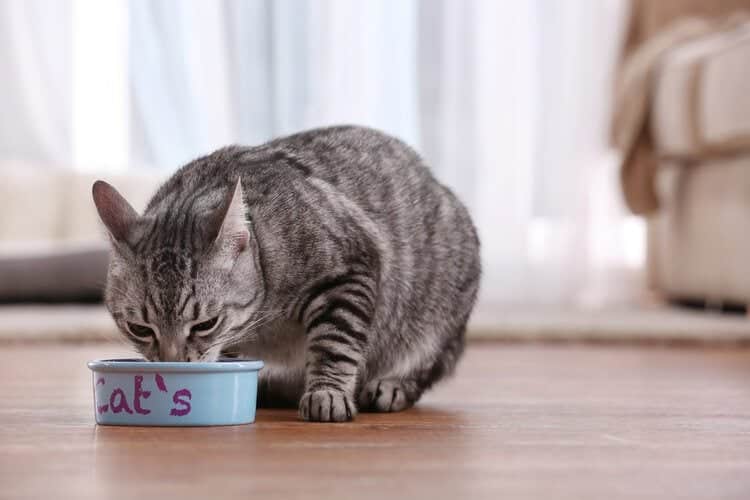
There is a name for cats who cannot get enough tuna—Tunaholics! This hearty cat food recipe is one to keep on hand as your cat is sure to hang around the kitchen and meow at your feet to request more. These ingredients are likely ones you always keep in your pantry, which makes this a simple and easy go-to recipe.
However, we recommend replacing the breadcrumbs with ground flaxseed for a healthier version. Remember that this particular recipe is not a complete or balanced diet, so it is only meant to be served occasionally.
3. Chicken & Vegetables Cat Food Recipe
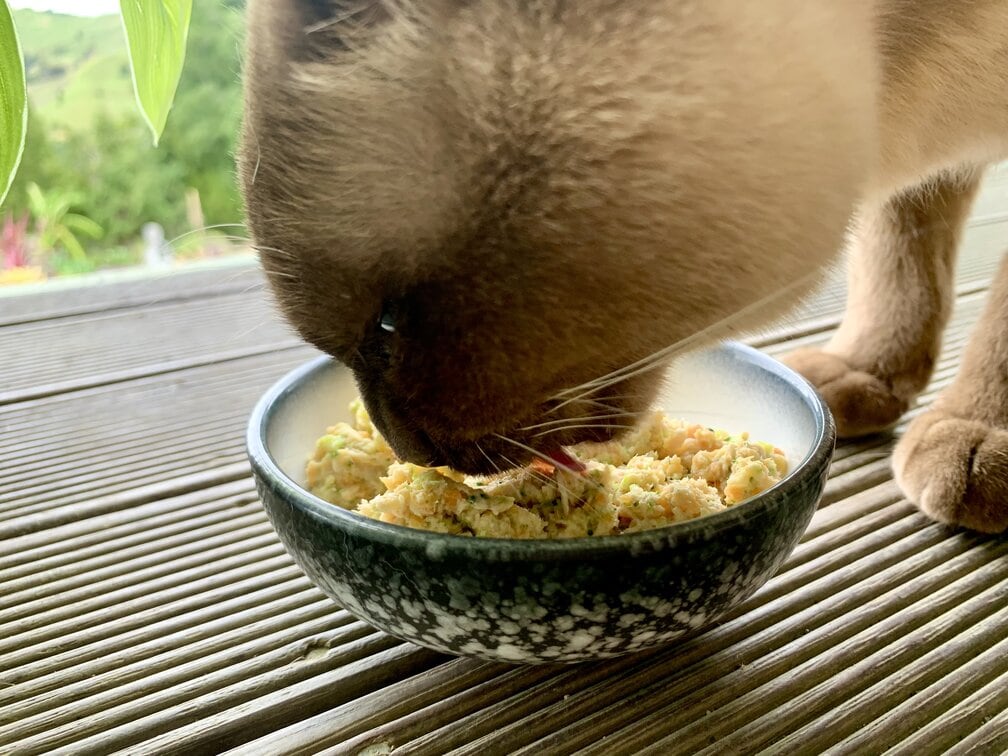
The cat food recipe includes the classic combination of chicken and vegetables that even your cat will enjoy. You can use an adorable baking mold or ice cube tray to portion and freeze any excess pate!
4. Beef & Cottage Cheese Cat Food Recipe

Finding a recipe as inclusive as this might be difficult. The main ingredient is beef, but it’s rounded out with rice, carrot, alfalfa, and cottage cheese!
5. Turkey & Rice Cat Food Recipe

You can make the most of your turkey dinner using the giblets as a fancy feast base for your cat’s meal. These nutrient-rich organs are an excellent choice for your feline’s diet. Your cat will be happy to see the turkey giblets in their dish at dinner time!
Raw Cat Food Recipes
Choosing a raw diet for your cat is not for everyone, but for those willing to take the dive, these raw cat food recipes will not disappoint. Ensuring your cat is receiving the proper nutrients is the number one priority when preparing your cat food, which requires adding supplements and occasionally leaving in the bones! Read on for 5 protein-packed raw cat food recipes.
6. Raw Cat Food Recipe with Meat, Organs & Vitamins

You can use a variety of meats and their organs with this next meal. An unlikely ingredient included in this recipe is eggshells!
7. Raw Cat Food Recipe made with Chicken, Salmon & Bones
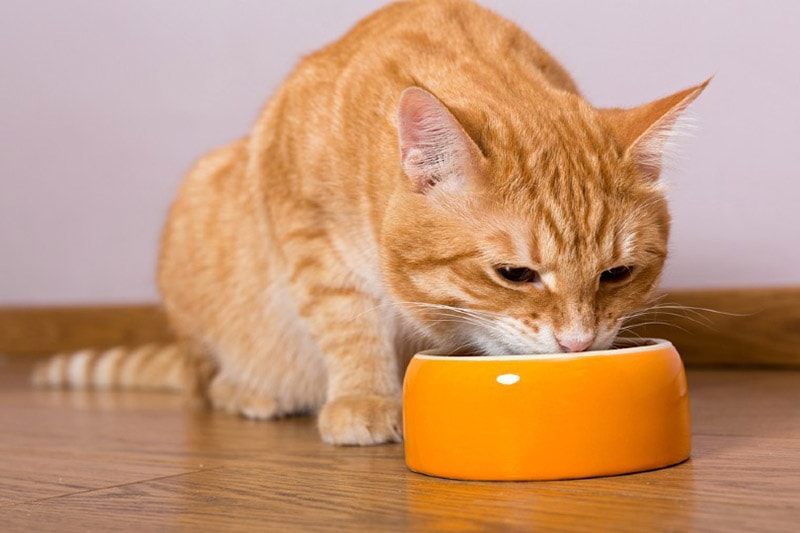
This raw cat food recipe is all meat, which is what your cat was hoping for! It is also the ultimate surf and turf dish to please all cats.
8. Grain Free Chicken Raw Cat Food Recipe
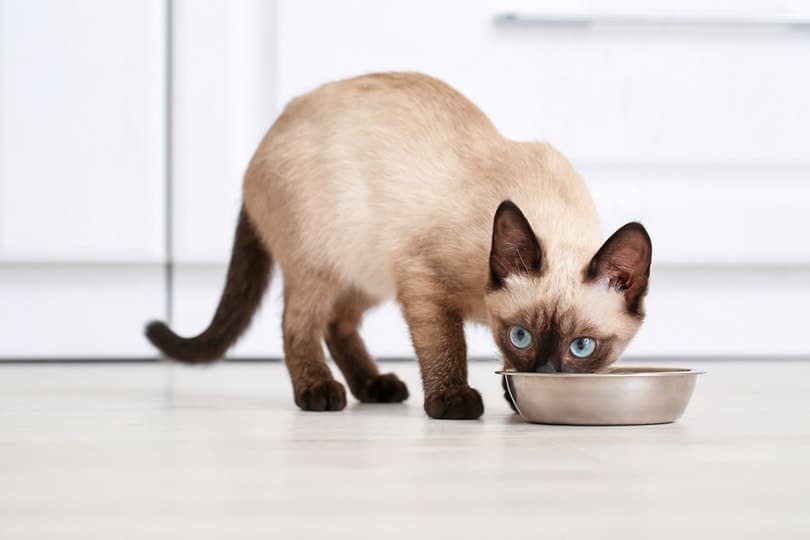
Although we sneak a few grains into their diet occasionally, cats can benefit from a grain-free diet as they are carnivores. Here is a perfect example of a protein-rich recipe.
9. Chicken & Supplements
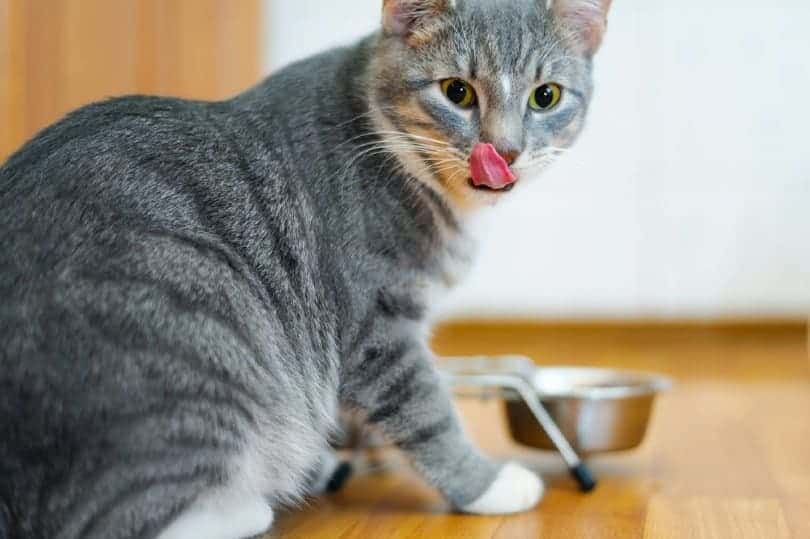
Here is another great alternative to a dry and otherwise boring cat kibble. A raw cat food recipe like this is ideal for an obligate carnivore, which a cat is!
Since you invest a lot of time curating the perfect homemade recipes for your cat, it would only make sense to present it in a high-quality, modern bowl to match. Serve your cat in style with the Hepper NomNom Cat Bowl! Dual, stainless steel bowls are wide and shallow for optimum comfort and an elegant wide tray collects crumbs or splashes. Learn more about the NomNom Bowl here.
At Catster, we’ve admired Hepper for many years and decided to take a controlling ownership interest so that we could benefit from the outstanding designs of this cool cat company!Our Favorite Product Right Now
Conclusion
Testing our recipes and finding what works with your pet might be a process when preparing your own cat food, but we hope you see how simple it can be with these 10 great recipes for homemade cat food—of the raw and cooked varieties! We also hope you enjoyed learning how to make cat food of your very own.
Looking for more great recipes for your feline? Check these out!
Feature Image Credit: bollection, Pixabay
Contents
- The 9 Homemade Cooked Cat Food Recipes
- 1. Our Favorite Easy Salmon Cat Food
- 2. Tuna Ball Cat Food Recipe
- 3. Chicken & Vegetables Cat Food Recipe
- 4. Beef & Cottage Cheese Cat Food Recipe
- 5. Turkey & Rice Cat Food Recipe
- Raw Cat Food Recipes
- 6. Raw Cat Food Recipe with Meat, Organs & Vitamins
- 7. Raw Cat Food Recipe made with Chicken, Salmon & Bones
- 8. Grain Free Chicken Raw Cat Food Recipe
- 9. Chicken & Supplements
- Conclusion

